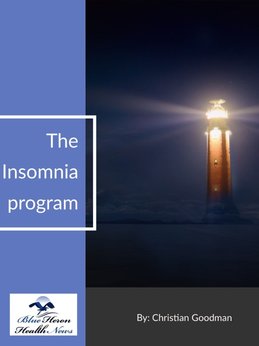
The Insomnia Program™ By Christian Goodman This program has been created by Christian Goodman, a natural health expert and sufferer of insomnia. He has used an audio program to let your fall sleep with the help of a bit of a hypnotic effect on your body.
What is the impact of insomnia on daily functioning?
Impact of Insomnia on Daily Functioning
Insomnia, a prevalent sleep disorder characterized by difficulty falling asleep, staying asleep, or experiencing restorative sleep, significantly impacts daily functioning. This impact manifests in various domains, including cognitive performance, emotional well-being, physical health, and social interactions. Understanding these effects can help in addressing and managing the broader implications of insomnia.
Cognitive Impairments
Memory and Learning:
- Insomnia impairs the ability to consolidate memory and process new information. Sleep is crucial for memory consolidation, and lack of restorative sleep disrupts this process, leading to forgetfulness and difficulty in learning new tasks (Health.mil) (Helsestart – Startsiden for helse).
Attention and Concentration:
- Individuals with insomnia often experience reduced attention span and impaired concentration. This can hinder the ability to perform tasks that require sustained focus, such as reading, driving, and work-related activities (Helsestart – Startsiden for helse) (AJMC).
Decision-Making and Problem-Solving:
- Chronic sleep deprivation affects the prefrontal cortex, the brain area responsible for executive functions. This impairment leads to difficulties in decision-making, problem-solving, and critical thinking (Helsestart – Startsiden for helse) (Health.mil).
Emotional and Psychological Effects
Mood Disturbances:
- Insomnia is closely linked to mood disorders. Individuals with chronic insomnia are at a higher risk of developing depression and anxiety. Mood swings, irritability, and heightened emotional reactivity are common among those suffering from insomnia (AJMC) (Health.mil).
Stress and Anxiety:
- The persistent worry about not being able to sleep can lead to increased stress and anxiety levels. This creates a vicious cycle where stress and anxiety further exacerbate sleep problems (AJMC).
Reduced Quality of Life:
- The overall quality of life is significantly reduced due to the constant struggle with sleep. Insomnia can lead to a sense of hopelessness and decreased motivation, affecting personal and professional life (Helsestart – Startsiden for helse) (Health.mil).
Physical Health Implications
Increased Risk of Chronic Conditions:
- Insomnia is associated with an increased risk of several chronic health conditions, including hypertension, cardiovascular diseases, diabetes, and obesity. The lack of restorative sleep disrupts hormonal balance, increases inflammation, and impairs glucose metabolism (AJMC) (Health.mil).
Immune System Weakness:
- Sleep is essential for maintaining a healthy immune system. Insomnia weakens the immune response, making individuals more susceptible to infections and slower recovery from illnesses (Health.mil) (AJMC).
Pain and Discomfort:
- Chronic insomnia can exacerbate pain conditions such as arthritis and fibromyalgia. The perception of pain is heightened when sleep is disrupted, leading to a cycle of pain and sleep disturbance (Health.mil).
Social and Occupational Effects
Impaired Social Interactions:
- Insomnia can lead to social withdrawal and decreased interest in social activities. The irritability and mood swings associated with sleep deprivation can strain relationships with family, friends, and colleagues (AJMC).
Decreased Work Performance:
- The cognitive impairments and emotional disturbances caused by insomnia lead to decreased productivity and efficiency at work. Increased absenteeism and presenteeism (being at work but not functioning effectively) are common in individuals with insomnia (Health.mil) (Helsestart – Startsiden for helse).
Safety Risks:
- Insomnia increases the risk of accidents and injuries. Drowsiness and impaired reaction times make activities like driving and operating machinery dangerous. Workplace accidents are also more common among individuals with sleep disorders (AJMC) (Helsestart – Startsiden for helse).
Conclusion
Insomnia profoundly impacts daily functioning across cognitive, emotional, physical, social, and occupational domains. The cognitive impairments include memory issues, reduced concentration, and poor decision-making. Emotionally, insomnia is linked to mood disturbances, increased stress, and a lower quality of life. Physically, it raises the risk of chronic diseases and weakens the immune system. Socially and occupationally, it leads to impaired interactions, decreased work performance, and increased safety risks. Addressing insomnia through medical intervention, cognitive-behavioral therapy, and lifestyle changes is crucial to mitigating these broad and significant impacts.

The Insomnia Program™ By Christian Goodman This program has been created by Christian Goodman, a natural health expert and sufferer of insomnia. He has used an audio program to let your fall sleep with the help of a bit of a hypnotic effect on your body.